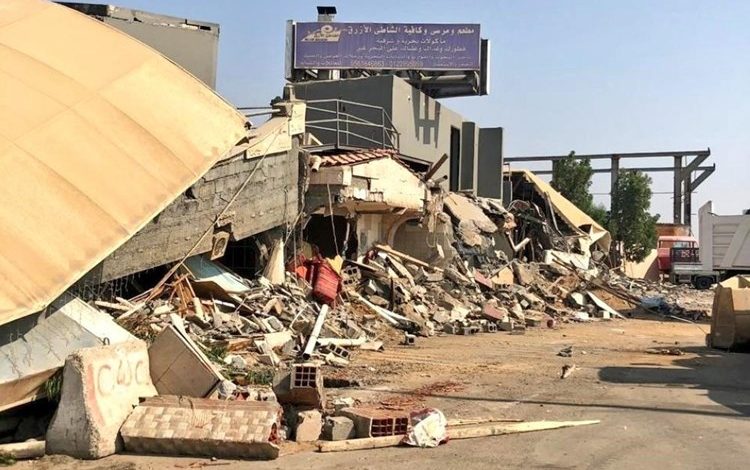
The demolitions and forced evictions in Jeddah sparked widespread controversy in Saudi Arabia, in light of the accompanying painful complaints on social media, amid the consensus of observers that what is happening falls within the framework of the Westernization project series Kingdom.
According to the mayor of the city, Saleh Al-Turki, Jeddah is facing the largest demolition operation in its history, represented by the demolition of more than 60 neighbourhoods.
Although many of these neighbourhoods are regular and modern, the government called them “slums” and promoted that their residents were criminals and drug users.
The Saudi regime promotes that the Jeddah city development project aims to build 17,000 housing units and more than 2,700 hotel rooms, 10 entertainment and tourism projects, and 4 significant landmarks: an opera house, a museum, a sports stadium and ocean basins, with a total investment of 75 billion riyals, financed by the Public Investment Fund and many investors.
The company responsible for executing the project is Tatweer Downtown Jeddah, a modern company established in 2019 by the Public Investment Fund.
Observers wonder why the project was not assigned to one of the giant companies with long experience in development and reconstruction.
Since its establishment in 1971, the Public Investment Fund has been affiliated with the Ministry of Finance and does not take its decisions in isolation from the Council of Ministers.
In March 2015, the Fund’s reference was transferred from the Ministry of Finance to the Council of Economic and Development Affairs, which King Salman established on January 29, 2015 (only 6 days after he assumed power).
This led to the Fund’s estimated wealth of $430 billion, now not affiliated with the Ministry of Finance and the oversight of the Council of Ministers, but rather the Council for Economic and Development Affairs, headed by Crown Prince Mohammed bin Salman.
Bin Salman also heads the Public Investment Fund and the Central Jeddah Company, responsible for implementing the project.
This means that all the project funds and the investment fund are under the guardianship of bin Salman, the implementing company is under his management, and the boards of directors are just employees whom he appoints and dismisses whenever and however he wants.
That is, the state’s major projects have become contractors for his private companies in one way or another through an official cover.
On the other hand, the Undersecretary of the Emirate of Makkah announced the provision of 720 housing units to those affected by the demolition of Jeddah neighbourhoods and promised to deliver another 4781 units in 2022, a small number that is not enough to accommodate more than one and a half million citizens who were displaced due to the demolition.
Observers assert that if the government had considered citizens as its priority, it would have allowed them to re-own housing units in their same neighbourhoods after they had been developed, but it would have abandoned them forever.
The government contented itself with displaying shameful pictures to compensate only tens of families, while tens of thousands remained without real solutions.
The announced development project will provide, upon completion in 2029, about 17,000 units, accommodating 58,000 people (according to government data), or only 4% of the total displaced population.
Consequently, the housing problem, which was a frightening obsession and a big dream for tens of thousands of families before the threat, will worsen further, so what about after the displacement of a million and a half citizens?
The Jeddah Downtown project was announced that it would raise Jeddah to be one of the top 100 cities in the world, and it would be a modern city with an opera house and cinemas, which would pave the way for a city with exotic customs and an open culture that collides with our Arab and Islamic norms.
As a result, the Jeddah development project “if it is completed” will not be for the citizen’s benefit. Instead, it is an opportunity to polish bin Salman’s image, satisfy his arrogance with achievements, and create cities consistent with his westernization project, which is one of the means to control the country’s wealth and billions through his companies and positions occupied in the state.